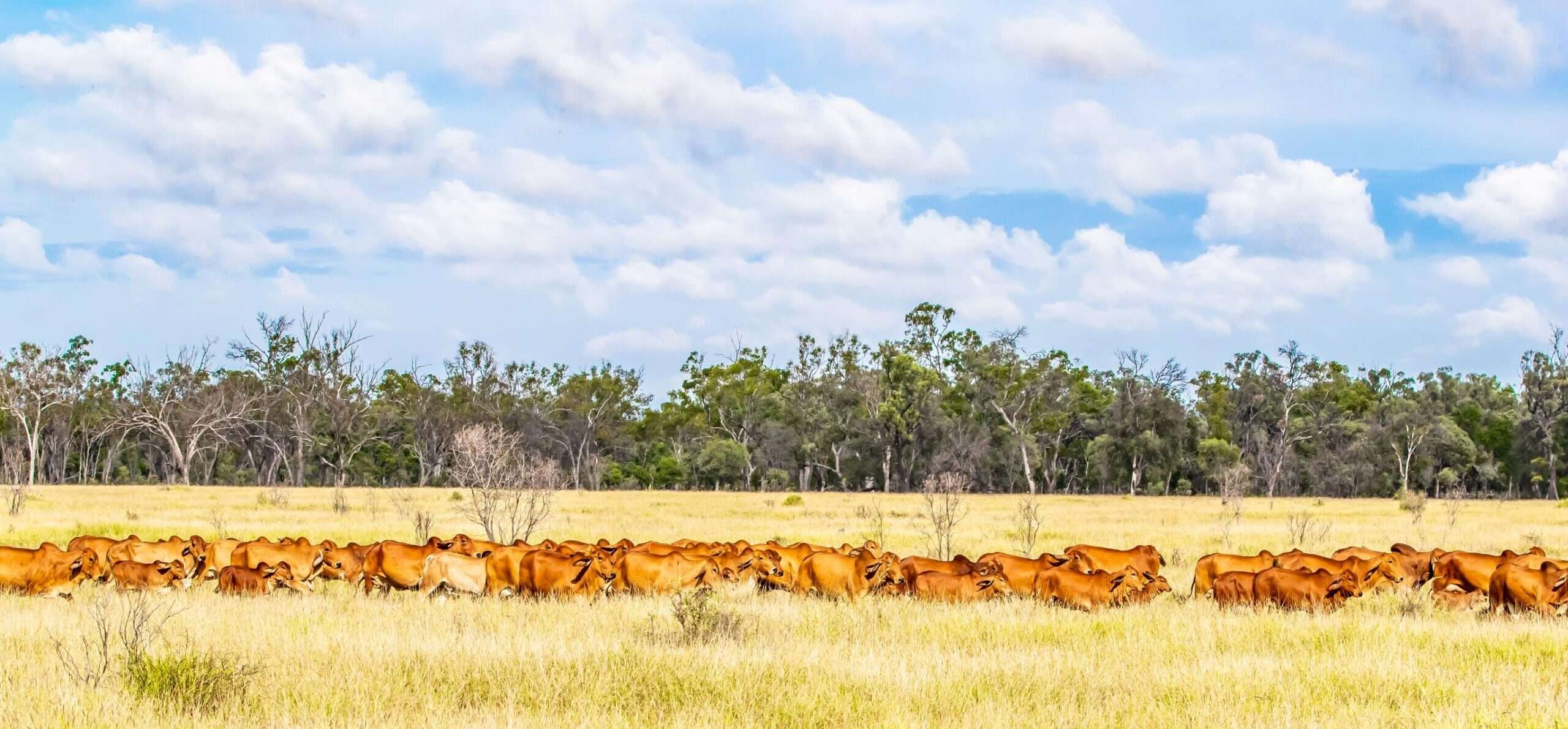The world’s first gene marker for beef tenderness was recently discovered by researchers working in the Cooperative Research Centre (CRC) for Cattle and Beef Quality. This complements the world’s first and only other gene marker test for a production trait, the discovery of the TG5 marbling gene, also discovered by Dr Bill Barendse from CSIRO Livestock Industries, Brisbane.
As part of the CRC’s molecular genetics research, gene markers associated with economically important production traits are being identified. There are two types of genetic (DNA-based markers.) The first are indirect or linked markers (also technically referred to as Quantitative Trait Loci or QTL). They are unknown bits of DNA close to, but not necessarily on, the genes that affect performance traits in cattle. Linked markers can only be used in breeding programs with cattle of known pedigree and some progeny testing is required to determine that the effect being transmitted is the desired effect. Indirect markers are best used in conjunction with traditional genetic evaluations (i.e. BREEDPLAN EBVs). Linked markers are easier and cheaper to identify, but are not as useful in breeding programs as the second type of marker, which is the direct marker or candidate gene.
Direct markers or candidate genes coincide with genes of known identity and effect and can therefore be used directly for either seedstock selection or “drafting” non-pedigreed cattle. Of the candidate genes studied by the CRC for Cattle and Beef Quality thus far, one gene has shown highly significant and consistent association (linkage disequilibrium) to tenderness as measured by Warner Bratzler shear force values for the striploin (longissimus dorsi) muscle. These results are particularly significant for breeders of tropical cattle. A provisional patent application has been lodged and the results presented to the CRC’s commercial partners, Genetic Solutions Pty Ltd, who have expressed interest in both marketing and undertaking further research on the test.
The action of the gene being investigated has been implicated in tenderness in many earlier studies. Work in CRCI indicated that DNA markers segregated with shear force, and the peak of the lod-score occurred at the polymorphism for this gene. In further studies in CRCII, genotypes were examined to determine whether there was an association between the known genotype and Warner Bratzler shear force. CRC results show an association between allele (or gene) ‘1’ and higher Warner Bratzler shear force (tougher meat; P<0.002) that accounts for 7.9 percent of the phenotypic variation. This association is not affected by the breed of the animal.
Cattle were chosen from the CRC DNA Bank to have as diverse a genetic and phenotypic background as possible. Animals of extreme shear force (very tough and very tender) were selected, although animals with shear force measures >12 kg were not included, because there may have been problems with electrical stimulation of those carcases. Animals were selected to ensure that all markets and finishing regimes were included in each extreme, so that extremes were not biased by being representative of a particular market or finishing regime. Two sample groups were used, as shown in Table 1.
Table 1. Characteristics of the two groups of cattle sampled for this experimentSample 1(n=169) Sample 2 (n=77)
| Shear Force extremes | 83 high shear force, 86 low shear force | 39 high shear force, 38 low shear force |
| Breeds | 29 Santa Gertrudis | 14 Santa Gertrudis |
| 82 British (Angus, Hereford, Shorthorn) | 39 British | |
| 27 Belmont Red | 11 Belmont Red | |
| 31 Brahman | 13 Brahman | |
| Regions | 38 Pasture South, 28 Pasture North | 24 Pasture South, 12 Pasture North |
| 57 Grain South, 41 Grain North | 21 Grain South, 20 Grain North | |
| Markets | 67 Domestic, 72 Korean, 25 Japanese | 25 Domestic, 35 Korean, 17 Japanese |
| Sires | 112 sires (median: 1 steer/sire) | 64 sires (median: 1 steer/sire) |
There are two common alleles (Figure 1) for the polymorphism (gene) being tested and both these alleles are found in all the breeds, although there are clear differences in genotype frequency within the breeds Zebu breeds have a greater frequency of the ‘11’ genotype (the unfavourable combination of genes) than the British and Belmont Red breeds in this sample (see Figure 2).
Figure 1. Genotypes for the tenderness gene
‘11’ represents the unfavourable combination of genes
‘22’ represents the favourable combination of genes
An analysis of the genotypes shows strong confirmatory evidence of the effects of the gene or sequences near the gene on Warner Bratzler shear force. The analysis shows no effect of breed, but since high and low shear forces for each breed were specifically sought, this was not unexpected. The size of effect associated with this polymorphism is approximately 7.9% of the measured variation. The difference in shear force between the ‘11’ and ‘22’ genotypes was 1.34 kg (when the mean shear force values of all CRCI straightbred cattle was 4.40 ± 0.85, meaning the effect is large). For the statistically minded, this is equivalent to 0.83 of a standard deviation. This value is likely to be overestimated because the extremes of the distribution were used. A proper estimate will require animals chosen at random from the full distribution of shear force. Nevertheless, this is a very useful amount of genetic variation associated with a single marker.
It is expected that the marker would be useful in direct DNA marker tests for breeding and feedlot streaming, with cattle breeders using the test to either cull for the unfavourable combination (11) of the gene or to select to increase the frequency of the favourable form (2) of the gene.
Figure 2. Frequency of the tenderness gene within breeds within sample groups 1 and 2.


CONTACT:
Dr Bill Barendse, CSIRO Livestock Industries, Brisbane
Phone (07) 3214 2444
Fax (07) 3214 2480
Email: Bill.Barendse@li.csiro.au

